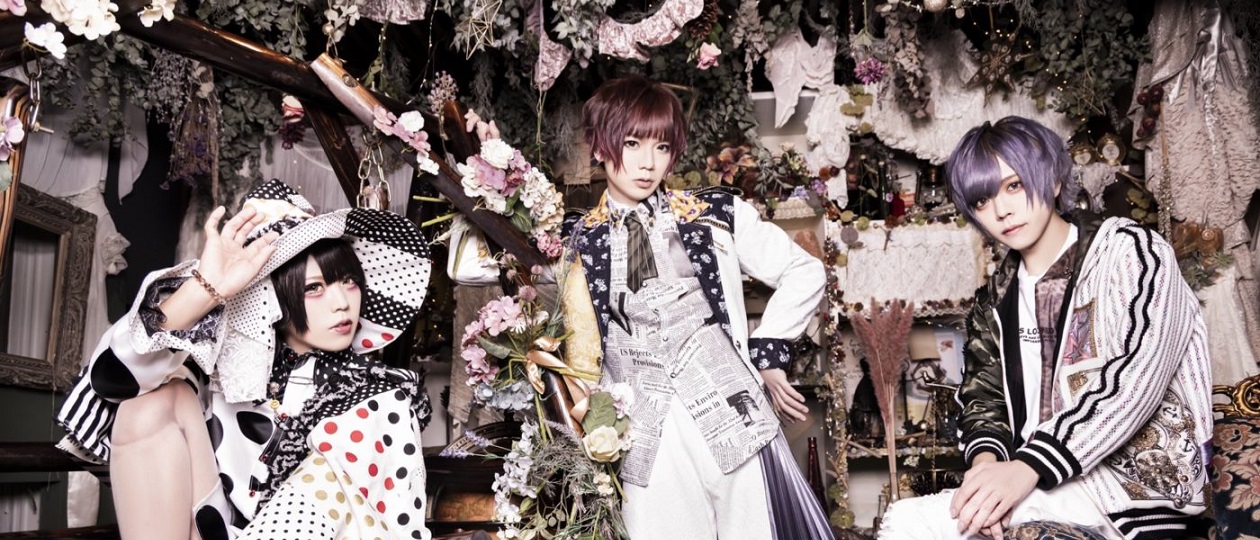
In the soft, dappled light of a spring afternoon, the Tanaka family home buzzed with the vivid laughter of children playing in the backyard. Beneath the great cherry tree, its delicate blossoms dancing in the breeze, Akiko Tanaka admired the nuanced hues of pink and white that adorned her neighborhood. She loved this time of year when the world felt awash in promise and beauty. Her brushes had just finished creating a floral harmony on a canvas when her attention shifted, as it often did, to the gentle clinking of teacups emanating from the kitchen.
Inside, the aroma of freshly brewed green tea filled the air. Akiko’s mother, Yuki, was preparing for their weekly gathering of friends and family, a cherished tradition woven into the very fabric of their lives. These gatherings were where stories were shared, laughter echoing like music, and bonds strengthened—a testament to the enduring spirit of their community. Every Saturday, regardless of the season, the Fukuyama family would join them for tea. Mr. Fujimoto, an esteemed elder in the community, often presided over these meetings, his presence embodying the tradition and pride of their cultural heritage.
As the afternoon wore on, the kitchen became a bustling hub of activity. Yuki’s hands moved gracefully as she arranged a tray of delicate rice cakes and sweet mochi for the guests. Akiko stepped inside, her brushes set aside, eager to help her mother prepare for the gathering. The rich culture of her ancestry was not merely to be remembered; it was to be celebrated.
The doorbell rang, and a familiar voice floated in—a warm, inviting sound that belonged to Miyoshi Sakamoto. Akiko’s heart lifted at the sight of her friend, whose bright smile was like a beacon against the burgeoning clouds of uncertainty gathering at the fringes of their lives.
“Miyoshi! You made it just in time for the mochi! Mother baked the sweet red bean paste just for us,” Akiko chimed, wrapping her arms around her friend in a tight embrace.
“Of course! I wouldn’t miss it,” Miyoshi replied, her eyes sparkling. “I brought the origami papers for our next project!”
“Great! Let’s begin after tea!” Akiko said, joy filling her heart.
The two girls took their seats alongside the adults as they settled into the living room. Mr. Fujimoto cleared his throat, drawing everyone’s attention like a skilled conductor poised to lead his orchestra. He was a robust man, his hair peppered with gray, yet his spirit was youthful—a lively recounting of traditions and tales flowed from his lips. His voice, resonant and warm, carried wisdom that had been handed down for generations.
“Today, we are not just celebrating our friendships; we gather to remember our culture and the strength that binds us,” he proclaimed, his gaze sweeping across the room and resting now on the girls. “Akiko, Miyoshi, you stand as the future of our community. It is your duty to hold onto our stories, to cherish the threads of our history.”
As Mr. Fujimoto spoke, Akiko felt the weight of his words sink deep into her heart. She and Miyoshi exchanged glances, both girls imbued with a sense of responsibility that felt both daunting and exhilarating. The teachings of their elders felt infused with urgency. This connection—much like the intricate threads of a tapestry—woven closely together, creating something far greater than the individual strands.
The conversation flowed seamlessly among the adults, each voice interweaving personal anecdotes and collective memories. Topics of harvest festivals, the enchanting Japanese New Year celebrations, and the simple joys of living as sweets were served punctuated the gathering with laughter and nostalgia.
“Taro and Akiko, do you remember last year’s cherry blossom festival?” Mr. Fujimoto’s voice danced through the room, evoking a vivid image of laughter filled with the fragrance of blooming sakura.
Akiko grinned, the memory of the festival warming her spirit. “I remember! Taro was determined to win the shooting game, even though he was a terrible shot!” The room erupted into laughter, echoing the camaraderie that had been cultivated over decades.
“You would think that after the first few misses, he’d have given up,” Miyoshi chimed in, her eyes sparkling with mischief as she glanced at Taro, who had just walked in.
“Hey! I only missed the first two! Besides, I won last year. Didn’t you all see?” Taro protested playfully, affecting mock indignation, radiating a charm that settled like a silken thread in the group’s laughter.
Despite the light-hearted banter, the air grew dense with unspoken concerns as Mr. Fujimoto’s expression shifted, an edginess sneaking into his voice. “But this year is different. We can see the change in the wind. I worry for all of you.”
The sound of laughter faded momentarily as apprehensive eyes met his. Akiko noted her friends’ amused expressions begin to transform, replaced by the unrecognizable weight of anxiety. She could sense the trembling undercurrents of fear lurking beneath the surface, something no one dared to voice aloud but felt acutely.
As Tokiko, Akiko’s younger sister, began to dazzle the adults with some impromptu origami, the room sparked back to life, yet Akiko struggled to shake the unease that had settled over her. She listened as Mr. Fujimoto continued. “We must remember our obligations together in this strange time. No matter how the storm may clash around us, we must keep our hearts open and our spirits entwined.”
Akiko tried to imagine how these words would be put to test in the face of a nation that brewed tensions against the backdrop of their peace, lending them an unnerving gravity. Inch by inch, whispers of growing hostility crept from a distant shore. News of war darkened the horizon, and though the sun cast its shine upon their lives for now, she felt a deep intuition that the beauty they cherished could easily turn into something unforgiving.
The Japanese American community was a mosaic of hope, tradition, and curiosity that painted a lovely image against the fabric of American life, contrasting vibrant blossoms against the grimness of approaching hostilities. Yet, as those outside their circle began to raise voices of distrust, the simple acts of sharing tea, laughter, and culture began to feel tainted—they began to perceive themselves through an unsettling lens that others outside their community had created.
As the sunlight began to seep beneath the horizon, casting long shadows across the floor of Akiko’s world, each family member felt a jarring reminder of their identity. They unfolded new layers of connection with one another, enveloping their community in a comforting embrace—a conviction stronger than the shadows scattered across the evening sky.
“I wish to paint a mural on the community center,” Akiko declared suddenly. “A mural of all of us—the families, traditions, and our values. A testament to our lives and love. We must carry this poignant history forward.”
Miyoshi’s eyes lit with enthusiasm, “I can help! We can incorporate origami designs and those into the mural!”
“I want to help too!” Taro chimed in, his youthful spirit awakened once more. “Let’s make it something everyone in town will remember!”
“Then it’s settled!” Akiko beamed, her heart swelling with the warmth that was slowly losing its luster in recent days.
As families departed, hugs exchanged, and warm wishes sent, the stars crept silently into view. Each glimmering point above felt like a thread in their community, threading together the fabric of their spirit against the darkness encroaching on their lives.
In the following weeks, as work began on the mural, Akiko delved deeper into her connections—hiking into histories shared amongst them. She learned from Yuki about her family’s journey to America, the sacrifices that produced the life she lived today. Another autumnal gathering unfolded as Akiko’s friends and neighbors shared their own stories—how their ancestors adapted, adjusted, and survived against great odds to carve a space for themselves in this land.
Drawing closer to each of these vibrant tales, Akiko felt the threads of community tightening around her—a quilt of resilience, beauty, and strength.
Around the mural, Akiko began incorporating symbols and stories—that of Mrs. Nakamura’s famous fish pie, the fluent calligraphy of Mr. Tanaka that adorned every street sign, and the craft of Akiko’s grandmother, Maiko, whose silk kimono crafting was passed through generations like a family heirloom. Little reminders that they were not just faces in the crowd, but vibrant pieces of a living tapestry.
Yet, as news and whispers grew darker—reports of Executive Order 9066 taking shape—Akiko felt the narrative of their lives shifting in the wind. Friends would express their fears in hushed tones; those with businesses worried about the future, shattered trust clawing at the edges of their lives. The fusion of pride and vulnerability no longer felt as harmonious as before.
But with each stroke of her brush, every pop of color she flung onto the canvas embedded stories that signified their bonds, their experiences woven into something palpable, something resilient that echoed across each color and line. The mural began to take on life, an embodiment of courage unfurling as Akiko painted beside Taro and Miyoshi under the watchful eye of Mr. Fujimoto, who stood by their side—a guardian of their culture, history, and spirit.
One evening, as dusk descended, Mr. Fujimoto pulled Akiko aside, a serious expression etched on his face. “We must prepare, Akiko. I see in my own family the beginnings of fear fracturing our community’s peace,” he said softly, not wanting to alarm the others. “You have a powerful voice through your art. It is imperative that we use this to remind ourselves of who we are and the strength within our bonds.”
Akiko nodded, determination gleaming in her eyes. The threads of community that had defined their lives needed to brave a coming storm; no one would tell their story for them.
With the cherry blossoms gently blooming around them, a haunting sweetness lingered in the air. Against the daunting shadows that loomed beyond the horizon, Akiko’s heart swelled—for within shared traditions and memories lay the strength to face whatever storms would come.
As these gatherings continued, they transformed into forums for discussion, each family grappling with the weight of identity and the haunting echo of the growing xenophobia that had begun to ripple through their nation. The cultural ties that once felt impenetrable now seemed delicate in the face of rising tensions.
During one otherwise ordinary gathering, a new guest arrived—an older gentleman who stepped quietly into the Tanaka’s home, bowing his head with a soft “konbanwa.” As he sat down, a whisper flitted around the room; he was a survivor of the earlier internment camps. His eyes held stories of resilience and sorrow that were unspoken yet radiated from him like an unyielding light.
He recounted tales of deep-rooted friendships forged amid the helplessness of confinement, how connections, though strained, had kept their spirits intact. Each anecdote was woven with the fibers of memories that tugged at the heartstrings of Akiko’s community. It was a vital reminder that even when adversity struck, the threads of their bonds could never be entirely severed.
By the time he left, tears had been shed and a collective resolve began to settle—an understanding that their community must fortify itself against any unraveling that might come swiftly and unexpectedly.
“I can’t help but be afraid,” Akiko whispered to Miyoshi later that evening as they sat beneath the blossoming cherry tree, the petals swirling around them like wisps of hope caught in the evening breeze. “What if we are torn apart? What if our stories disappear?”
“We are not just stories, Akiko. We are alive,” Miyoshi replied gently. “We must paint, we must speak—we must remember who we are even if the world chooses to forget.”
Their words echoed against the backdrop of fading daylight, igniting a spark to solidify their resolve. Together, they would hold onto their stories, crafting a community that would withstand uncertainty and tides of prejudice.
Thus, under the sacred cover of cherry blossoms that promised unity, the threads of community gained strength, interweaving tales of joy, sorrow, and courage against the shadows of what was to come. As the days turned into weeks, and the world outside continued to unravel, Akiko and her friends learned their greatest lesson: the tapestry they crafted together, though frayed at the edges, would always remain resilient—a constant reminder of the beauty and connections that defined them.





